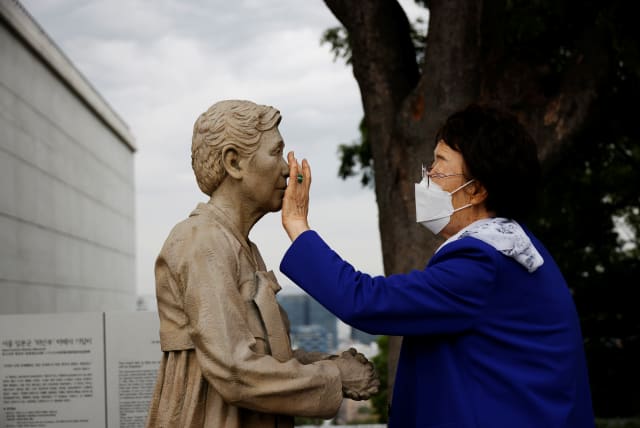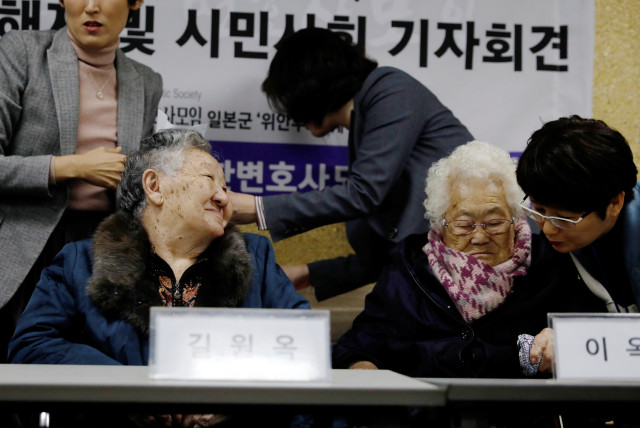South Korea court orders Japan to compensate 'comfort women'

The legacy of Japan's 1910-45 colonial rule of the Korean peninsula remains politically sensitive for both sides.
A South Korean appellate court on Thursday ordered Japan to compensate a group of 16 women who were forced to work in Japanese wartime brothels, overturning a lower court ruling that dismissed the case.
The legacy of Japan's 1910-45 colonial rule of the Korean peninsula remains politically sensitive for both sides, with many surviving "comfort women" - a Japanese euphemism for the sex abuse victims - still demanding Tokyo's formal apology and compensation.
Bilateral relations between the two US allies have been strained for years by the issues of wartime sex abuse and forced labor, but South Korea's President Yoon Suk Yeol and Japanese Prime Minister Fumio Kishida have sought to improve ties.
In response to the court's decision, Japanese vice minister for foreign affairs Masataka Okano summoned South Korean ambassador Yun Dukmin to lodge a "strong protest."The 16 victims filed the suit in 2016, seeking 200 million won ($155,000) each in compensation. But the Seoul Central District Court dismissed the case in 2021, citing sovereign immunity, a legal doctrine that allows a state to be exempt from a civil suit in foreign courts.
High court reverses lower court decision
The Seoul High Court, however, reversed the lower court's decision, recognizing the jurisdiction of South Korean courts over the Japanese government as a defendant.
"It is reasonable to consider that there is a common international law which does not recognize state immunity for an illegal act ... regardless of whether the act was a sovereign act," the appellate court said in a statement.
The court also said the case falls within South Korea's jurisdiction as the plaintiffs live in the country and sought compensation over the acts that are deemed "unlawful" under its civil law.
Tokyo has said the issue was settled under a 1965 treaty that normalized diplomatic relations, and the two neighbors agreed to "irreversibly" end the dispute in a 2015 deal.
South Korea's foreign ministry said it was looking into the details of the latest ruling, without elaborating.
Lee Yong-soo, a 95-year-old activist and victim who also filed the suit, welcomed the decision and tearfully thanked the court for the decision.
"I'm grateful. I'm really grateful," she said as she exited the courthouse, adding that she wished she was able to share the news and gratitude with some other victims who had passed away.
Jerusalem Post Store
`; document.getElementById("linkPremium").innerHTML = cont; var divWithLink = document.getElementById("premium-link"); if (divWithLink !== null && divWithLink !== 'undefined') { divWithLink.style.border = "solid 1px #cb0f3e"; divWithLink.style.textAlign = "center"; divWithLink.style.marginBottom = "15px"; divWithLink.style.marginTop = "15px"; divWithLink.style.width = "100%"; divWithLink.style.backgroundColor = "#122952"; divWithLink.style.color = "#ffffff"; divWithLink.style.lineHeight = "1.5"; } } (function (v, i) { });

